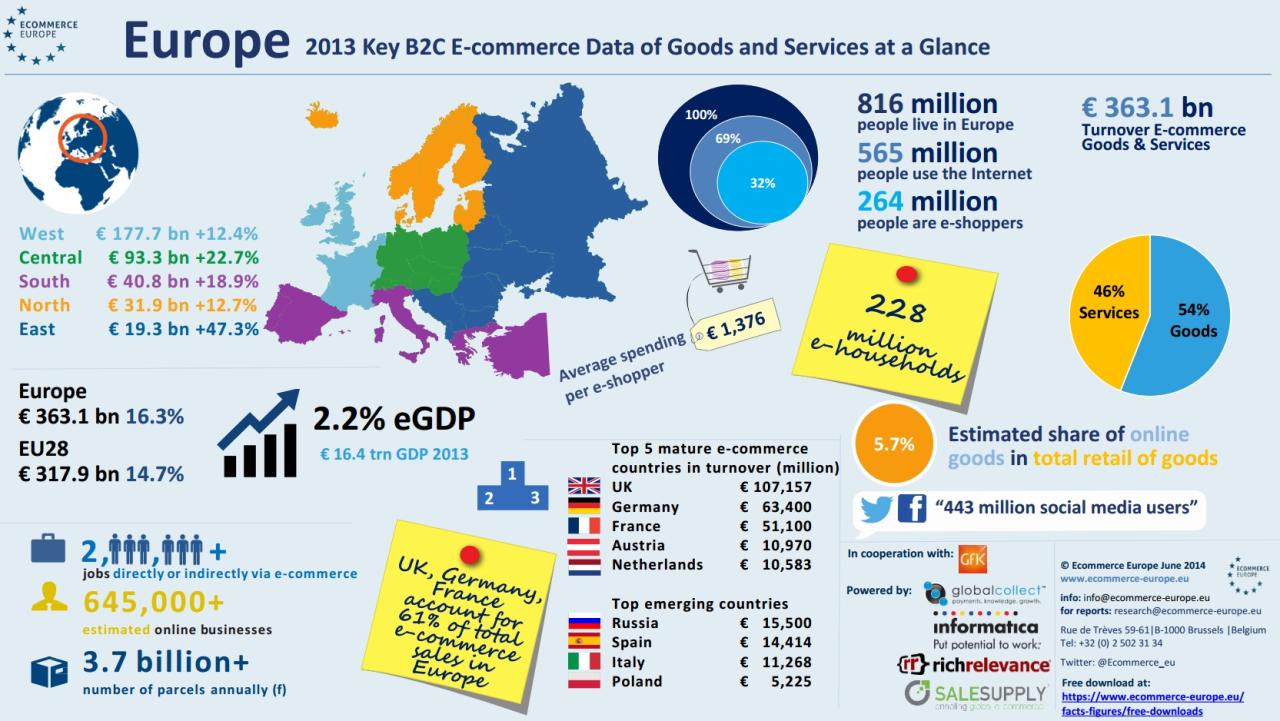In the realm of eCommerce, AI-Powered Product Recommendations take center stage, revolutionizing the way businesses connect with customers. This article delves into the intricacies of leveraging AI to drive conversions and enhance the online shopping experience.
Exploring the diverse landscape of AI algorithms and the challenges faced in implementing these systems, this guide sheds light on the transformative power of AI in eCommerce.
Introduction to AI-Powered Product Recommendations
AI-powered product recommendations in eCommerce refer to the use of artificial intelligence algorithms to analyze customer data and behavior in order to suggest personalized product recommendations to online shoppers. This technology allows online retailers to offer a tailored shopping experience to each customer based on their preferences, purchase history, and browsing patterns.Personalized recommendations play a crucial role in increasing conversions for eCommerce businesses.
By providing customers with relevant product suggestions, retailers can enhance the shopping experience, increase customer engagement, and ultimately drive sales. Studies have shown that personalized product recommendations can lead to higher click-through rates, longer time spent on site, and increased average order value.
Examples of Successful Implementation of AI-Powered Product Recommendation Systems
Implementing AI-powered product recommendation systems has proven to be highly effective for many eCommerce companies. Here are some examples of successful implementation:
- Amazon: Amazon's recommendation engine uses machine learning algorithms to analyze customer behavior and provide personalized product recommendations. This has significantly contributed to Amazon's success as the leading online retailer.
- Netflix: Netflix's recommendation system uses AI to suggest movies and TV shows based on users' viewing history and preferences. This has helped increase user engagement and retention on the platform.
- Sephora: Sephora's Beauty Insider program utilizes AI to offer personalized product recommendations and beauty tips to customers. This has resulted in higher customer satisfaction and loyalty.
Benefits of AI-Powered Product Recommendations
AI-powered product recommendations offer numerous advantages for eCommerce businesses, revolutionizing the way customers discover and purchase products online. By leveraging artificial intelligence, businesses can enhance the overall customer experience, drive engagement, and ultimately boost conversions.
Enhanced Customer Experience
AI algorithms analyze vast amounts of customer data, including browsing history, purchase behavior, and preferences, to deliver personalized product recommendations. This level of personalization creates a tailored shopping experience for each customer, increasing satisfaction and loyalty.
Increased Conversions
By presenting customers with relevant product recommendations based on their individual preferences and behaviors, AI-powered systems can significantly increase conversion rates. Customers are more likely to make a purchase when shown products that align with their interests, leading to higher sales and revenue for businesses.
Optimization Over Time
AI algorithms continuously learn and adapt based on customer interactions and feedback, allowing them to improve the accuracy and relevance of product recommendations over time. As these algorithms gather more data and insights, they can optimize recommendations to better meet the needs and preferences of customers, ultimately driving higher conversion rates and customer satisfaction.
Types of AI Algorithms for Product Recommendations

Collaborative filtering and content-based filtering are two common types of AI algorithms used for product recommendations. While collaborative filtering relies on user behavior and preferences, content-based filtering focuses on the attributes of the products themselves. Deep learning and neural networks are also utilized in product recommendations to analyze complex patterns and relationships in data.
Reinforcement learning plays a critical role in refining AI-powered product recommendations by continuously learning and improving based on feedback.
Collaborative Filtering vs. Content-Based Filtering
- Collaborative filtering: This algorithm recommends products based on the behavior and preferences of similar users. It does not require a detailed understanding of the products themselves but focuses on user interactions.
- Content-based filtering: In contrast, this algorithm recommends products based on the attributes of the items themselves. It requires a deep understanding of the products and matches them to user preferences based on those attributes.
Deep Learning and Neural Networks for Product Recommendations
- Deep learning: This subset of machine learning uses neural networks to analyze vast amounts of data and extract complex patterns. It can uncover hidden relationships between users and products to make accurate recommendations.
- Neural networks: These interconnected layers of algorithms mimic the human brain's structure and are used to process large datasets efficiently. They excel at capturing intricate patterns in user behavior for personalized recommendations.
Role of Reinforcement Learning in Refining Recommendations
- Reinforcement learning: This approach involves an AI system learning through trial and error to maximize rewards. In product recommendations, reinforcement learning helps refine suggestions by continuously experimenting and adapting based on user feedback.
- Continuous improvement: By leveraging reinforcement learning, AI-powered product recommendation systems can adapt in real-time to changing user preferences and market trends, leading to more accurate and personalized suggestions over time.
Implementing AI-Powered Product Recommendations
Implementing AI-powered product recommendations in an eCommerce platform involves several key steps to ensure a successful integration. From selecting the right AI solution to monitoring and evaluating performance, here are some tips and best practices to consider
Integrating AI-powered Recommendation Systems
- Identify business goals: Determine the specific objectives you want to achieve with AI-powered product recommendations, such as increasing sales, improving customer satisfaction, or enhancing user experience.
- Choose the right AI solution: Select an AI-powered recommendation system that aligns with your business needs, budget, and data requirements. Consider factors like scalability, customization options, and ease of integration.
- Collect and preprocess data: Gather relevant data on customer behavior, preferences, purchase history, and interactions with your platform. Clean and preprocess the data to ensure its quality and accuracy for training the AI algorithms.
- Train the AI models: Utilize machine learning algorithms to train the AI models based on the collected data. This process helps the AI system learn patterns, trends, and correlations to make accurate product recommendations.
- Integrate with eCommerce platform: Implement the AI-powered recommendation system into your eCommerce platform, ensuring seamless integration with the user interface and shopping experience.
Selecting the Right AI Solution
- Evaluate business needs: Consider your specific business goals, target audience, product catalog size, and budget constraints when selecting an AI solution.
- Assess data requirements: Determine the amount and quality of data needed for the AI system to generate effective recommendations. Ensure you have access to the necessary data sources and can preprocess the data effectively.
- Check scalability and flexibility: Choose an AI solution that can scale with your business growth and adapt to changing market trends. Look for flexibility in customization options and algorithm refinements.
- Consider integration ease: Select an AI solution that can be easily integrated with your existing eCommerce platform, without significant technical challenges or disruptions to the user experience.
Monitoring and Evaluating Performance
- Track key performance metrics: Monitor metrics like click-through rates, conversion rates, average order value, and revenue generated from AI-powered recommendations to assess performance.
- Perform A/B testing: Conduct A/B tests to compare the effectiveness of different recommendation algorithms or strategies. Use the results to optimize and refine the AI models for better performance.
- User feedback and reviews: Gather feedback from users on the relevance, accuracy, and helpfulness of the product recommendations. Use this input to make adjustments and improvements to the AI system.
- Regularly update AI models: Keep the AI algorithms up to date with the latest data and trends to ensure they continue to provide relevant and personalized recommendations to users.
Challenges and Considerations in AI-Powered Recommendations

When it comes to implementing AI-powered product recommendations in eCommerce, there are several challenges and considerations that need to be addressed to ensure the success and effectiveness of the system.
Data Privacy Concerns and Algorithm Bias
Data privacy concerns are a significant challenge when it comes to AI-powered recommendations. Customers may feel uncomfortable with their data being used to make personalized recommendations, leading to trust issues. Moreover, algorithm bias can occur if the data used to train the AI models is not representative of the entire customer base, resulting in recommendations that are skewed or discriminatory.
Importance of Transparency and Explainability
Transparency and explainability are crucial aspects of AI-powered recommendations. Customers need to understand how recommendations are being made and why certain products are being suggested to them. Providing transparency in the recommendation process builds trust with customers and enhances the overall shopping experience.
Scalability Issues and Continuous Optimization
Scalability is another challenge faced when implementing AI-powered recommendations, especially as the customer base grows. The system needs to be able to handle a large volume of data and user interactions without compromising performance. Additionally, continuous optimization of AI models is essential to ensure that recommendations remain accurate and relevant over time.
Regular updates and adjustments are necessary to adapt to changing customer preferences and market trends.
Summary

As we wrap up our journey through the realm of AI-Powered Product Recommendations, one thing is clear: the future of eCommerce lies in the hands of artificial intelligence. By harnessing the potential of AI algorithms, businesses can unlock unprecedented growth and deliver personalized experiences that resonate with customers.
FAQ Overview
What is the role of AI in boosting conversions in eCommerce?
AI analyzes customer behavior to provide personalized product recommendations, ultimately increasing conversion rates.
How do AI algorithms improve over time for product recommendations?
AI algorithms utilize machine learning to adapt and optimize recommendations based on user interactions and feedback.
What are the challenges associated with AI-Powered Product Recommendations?
Challenges include data privacy concerns, algorithm bias, and the need for continuous optimization of AI models.



